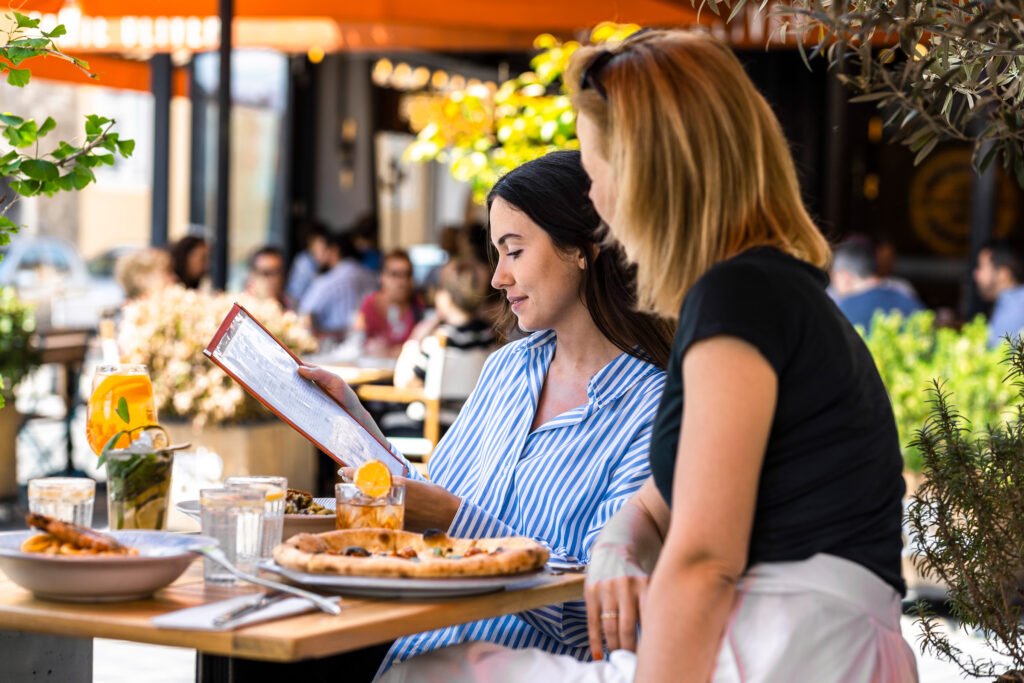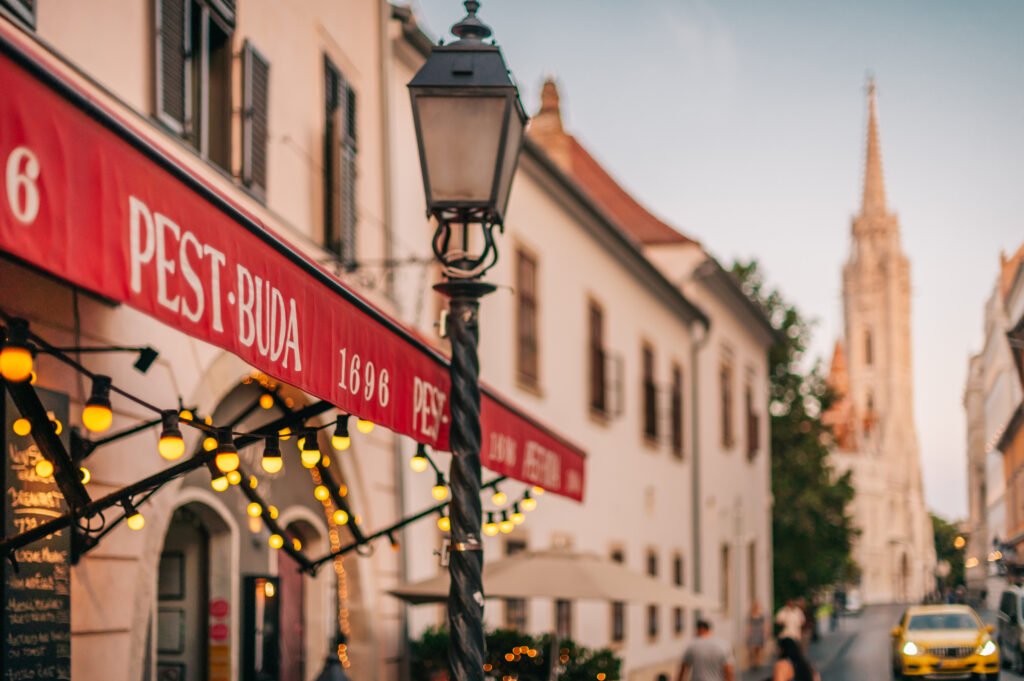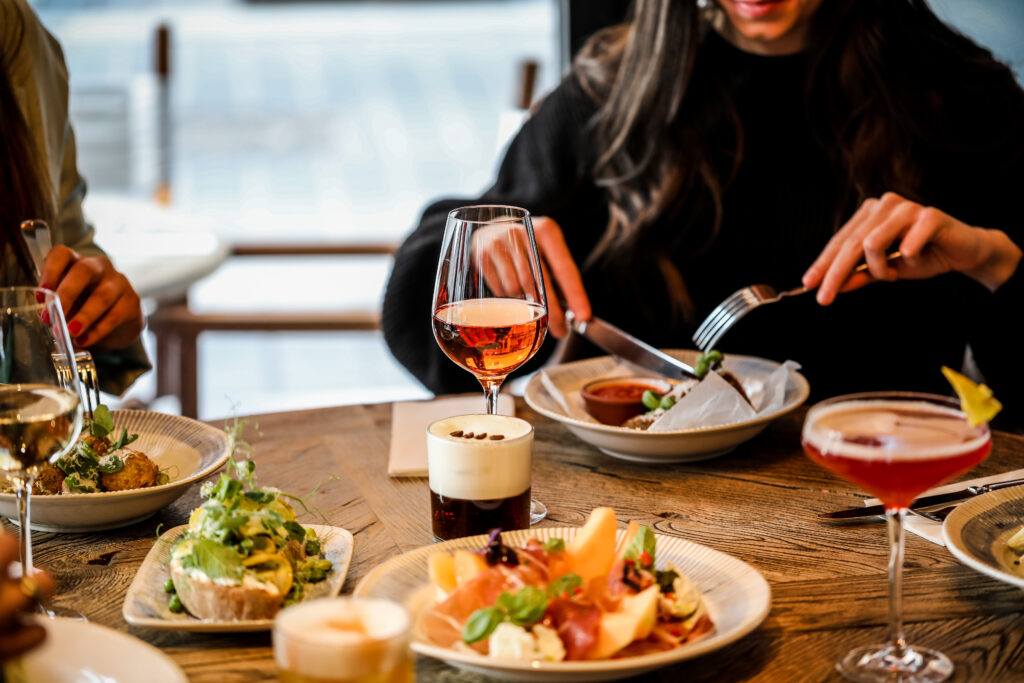Stepping into a Hungarian restaurant in Budapest or gathering for a meal in a countryside home is more than just dining—it’s embracing a deep-rooted tradition. Whether savoring slow-cooked goulash or sharing a family table, understanding Hungarian dining etiquette can elevate your experience.
Why Does Dining Etiquette Matter? In Hungary, food is much more than fuel—it’s tradition, hospitality, and cultural pride all on one plate. Understanding local dining customs can help international visitors feel more at ease and fully enjoy everything from family-style dishes to high-end Buda Castle restaurants.
But what should you know before sitting down to eat? Let’s explore the essentials—from restaurant table manners to the unspoken rules of home hospitality.
Key Hungarian Dining Customs You Should Know
Say “Jó étvágyat!” before eating
One of the first expressions you’ll hear before a meal is “Jó étvágyat!”—meaning “Enjoy your meal.” This is not just polite etiquette, but expected, whether you’re dining in a restaurant in Budapest or at a friend’s house. If someone says it to you, the appropriate response is a smile or repeating the phrase back.
Hands visible, elbows off the table
It’s polite to keep your hands visible by resting your wrists on the edge of the table, while keeping your elbows off. This rule applies whether you’re eating in a restaurant or someone’s home.
Tipping: What’s expected in Hungarian restaurants?
Tipping in Hungary is customary, but the rules vary. In many places, especially upscale Buda restaurants or Italian restaurants in Budapest, a 12–15% service fee might already be included in the bill—always check! If no service fee is added, leaving 10–15% in cash is standard practice. Try to hand it directly to the server rather than leaving it on the table, as this is considered more respectful.

Visiting Someone’s Home vs. Dining in a Restaurant in Budapest
Hungarian hospitality is heartfelt and generous, whether you’re at a restaurant or a friend’s family table. Still, the etiquette differs slightly depending on the setting. Here’s what you need to know:
If You’re Invited to a Hungarian Home
Being invited to someone’s home in Hungary is a big deal, it’s a gesture of trust and friendship. To make a good impression, follow these rules:
- Bring a small gift: Wine, a dessert, a bouquet of flowers (an odd number!), or chocolates are perfect.
- Take off your shoes: In many homes, guests are expected to remove their shoes and wear slippers.
- Don’t refuse food or drink: Even if you’re full, try a little of everything. Refusing might be taken as impolite.
- Compliment the food: A sincere “Nagyon finom volt!” (It was delicious!) always goes a long way.
- Help if offered: While it’s not expected, offering to help with clearing the table or dishes shows respect.
If You’re Dining in a Hungarian Restaurant in Budapest
In restaurants, especially in well-known venues like a Hungarian restaurant in Budapest, the customs are slightly more formal:
- Always reserve a table, especially for dinner or weekends. Popular spots fill up quickly.
- Greet staff politely, and wait to be seated, don’t just choose a table.
- Wait to toast: Hungarians often wait for everyone to be served before saying “Egészségedre!” (Cheers).
- Don’t rush the meal: Dining is meant to be enjoyed slowly; even casual meals are unhurried.
- Paying the bill: Ask for the check—bills aren’t brought automatically. Tipping, if no service charge is included, should be in cash.
Particular Rules in Hungarian Restaurants You Shouldn’t Ignore
When dining in Hungary, especially in traditional or fine establishments, following local customs shows respect and elevates your dining experience. Here are some essential etiquette rules to keep in mind when visiting a Hungarian restaurant in Budapest.
Reservation importance in high‑end vs casual
In casual eateries or fast-casual venues, reservations might not be necessary—especially on weekdays. However, if you’re planning to visit a Buda Castle restaurant or a more upscale Hungarian restaurant in Budapest, booking a table in advance is essential. These locations are popular with both locals and tourists, and walk-ins are often turned away during peak hours. Making a reservation is a sign of respect and shows you’re serious about your culinary experience.
How to signal you’ve finished eating (fork & knife placement)
According to Central European dining etiquette, placing your fork and knife parallel on the right side of your plate is a clear sign that you have finished your meal. Avoid crossing utensils or leaving them too far apart, as this can confuse the waitstaff. This small gesture ensures your server knows when to clear the table without interrupting your experience.
What kinds of behaviour can be seen as rude
Dining out in Hungary, even at a casual restaurant in Budapest, carries certain expectations:
- Keep your elbows off the table during the meal.
- Don’t refuse food or drink outright—if you must, do so politely.
- Avoid loud conversations or phone calls at the table.
- Dress appropriately, especially in upscale or Buda-side venues.
- Show gratitude with a sincere “Köszönöm” or “Nagyon finom volt!” after your meal.
Respecting these norms enhances not just your own experience, but also the atmosphere for others around you.
How Casual vs Fine Dining vs Traditional Restaurants Differ in Etiquette
Dining etiquette in Budapest can vary greatly depending on the type of restaurant you choose. At casual dining restaurants, like Spíler Buda, the atmosphere is relaxed. Guests are welcome in everyday attire, and service is friendly but informal. You’ll still be expected to say “Jó étvágyat”, and tipping remains customary, usually around 10%.
In fine dining establishments—such as Pierrot in the Buda Castle—the tone shifts. Reservations are often essential, dress codes lean smart-casual or formal, and etiquette matters more. Napkins should be placed on your lap, and finishing your meal is indicated by placing a knife and fork parallel on the plate.
Traditional Hungarian restaurants, like Pest-Buda Bistro, blend the two: offering hearty local dishes in a respectful yet homey setting. Guests are expected to follow basic table manners, appreciate the food, and engage politely with staff.
Each setting brings a unique experience, but all celebrate Hungarian hospitality with varying degrees of formality.

What Changes in Italian or Other Ethnic Restaurants in Budapest?
While Hungarian dining etiquette sets the tone in most restaurants across the city, some variations can be found in ethnic establishments such as an Italian or Lebanese restaurant in Budapest. These places—such as Jamie Oliver’s Italian—tend to offer a more relaxed, family-style experience. While staff still appreciate polite gestures and good table manners, the atmosphere often allows for a more informal tone, especially when compared to a Buda Castle restaurant or traditional Hungarian restaurant in Budapest.
Casual greetings, shared plates, and flexible seating may be more common here. Whether enjoying pizza with kids or pasta on a casual date night, these restaurants strike the balance between local flavor and laid-back dining.

FAQ – Frequently Asked Questions
Should I book a table at a restaurant when visiting Budapest?
Yes, especially during weekends or tourist seasons. Restaurants like Pierrot or Pest-Buda Bistro in the Buda Castle area are popular and often fully booked.
How much should I tip at a Hungarian restaurant in Budapest if there is a service charge?
If a service charge is included (usually 12–15%), tipping is optional but still appreciated. A small round-up or extra 5% is considered polite.
Do I need to remove my shoes at Budapest homes?
Yes, in most Hungarian homes it’s customary to remove your shoes and wear slippers provided by the host. This shows respect for cleanliness.
Is it polite to refuse food or drink when offered in Hungary?
No, it can be seen as impolite. Even if you’re not hungry, try a small portion to show appreciation for the host’s hospitality.
When dining out, when do Hungarians typically say “Jó étvágyat,” and how should I respond?
This phrase is said before starting a meal, much like “bon appétit.” You should reply with a smile or a polite “Köszönöm!” (Thank you). You are also expected to say “Jó étvágyat” to others at your table.
If you’re looking for a Hungarian restaurant in Budapest that combines tradition, service and atmosphere, the Zsidai Group offers an ideal selection across the city. Our restaurants are more than meals—they’re experiences worth reserving in advance.

